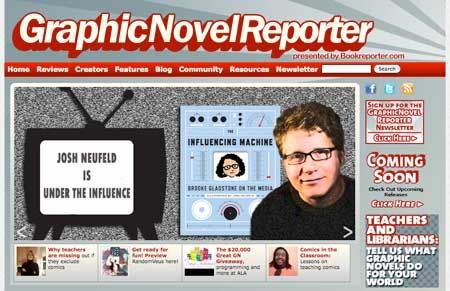Booklist has just reviewed The Influencing Machine, and since there’s no link yet, I’m attaching the text here:
The Influencing Machine: Brooke Gladstone on the Media. Illustrated by Josh NeufeldThe cohost of NPR’s
On the Media says she has always wanted to write a comic book, and here, with the indispensable aid of nonfiction alt-cartoonist Neufeld (
A Few Perfect Hours, 2004;
A.D.: New Orleans after the Deluge, 2009), she merges that dream with her vocation to tell the story of news media and dissect the practice of reporting. First, however, she explains her chosen title by sketching the sad, historic cases of James Tilly Matthews and Natalija A., who believed machines were controlling their minds—which makes one wonder if the topic at hand might be, say, conspiracy theories, or Fox News. But no, it’s the real media, beginning with the Incas, Herodotus, and the
Acta Diurna of the Roman Senate. The history’s always interesting, though, of course, a matter of tidbits, but the discussion of reportorial ideas, especially objectivity, and what psychological research has revealed about how people receive news and opinion is enthralling. Placing a simply caricatured Gladstone on every illustrated page (occasionally, what she writes defies pictorialization), Neufeld assures a bright aura throughout. — Ray Olson

